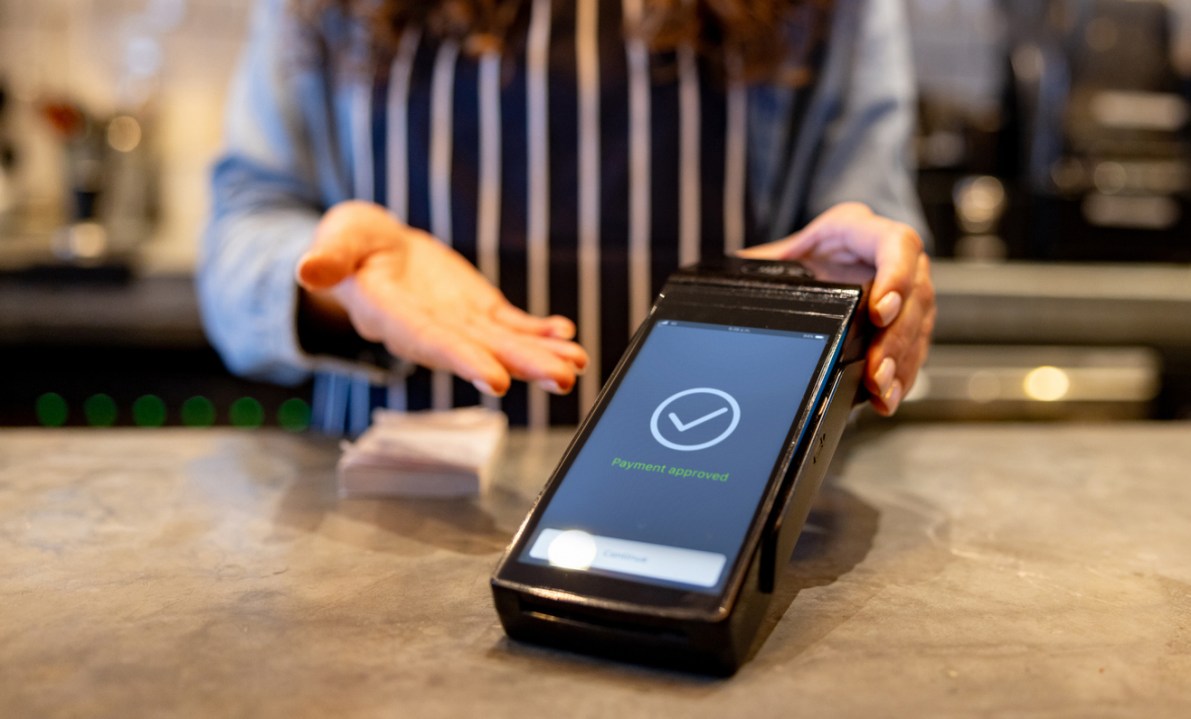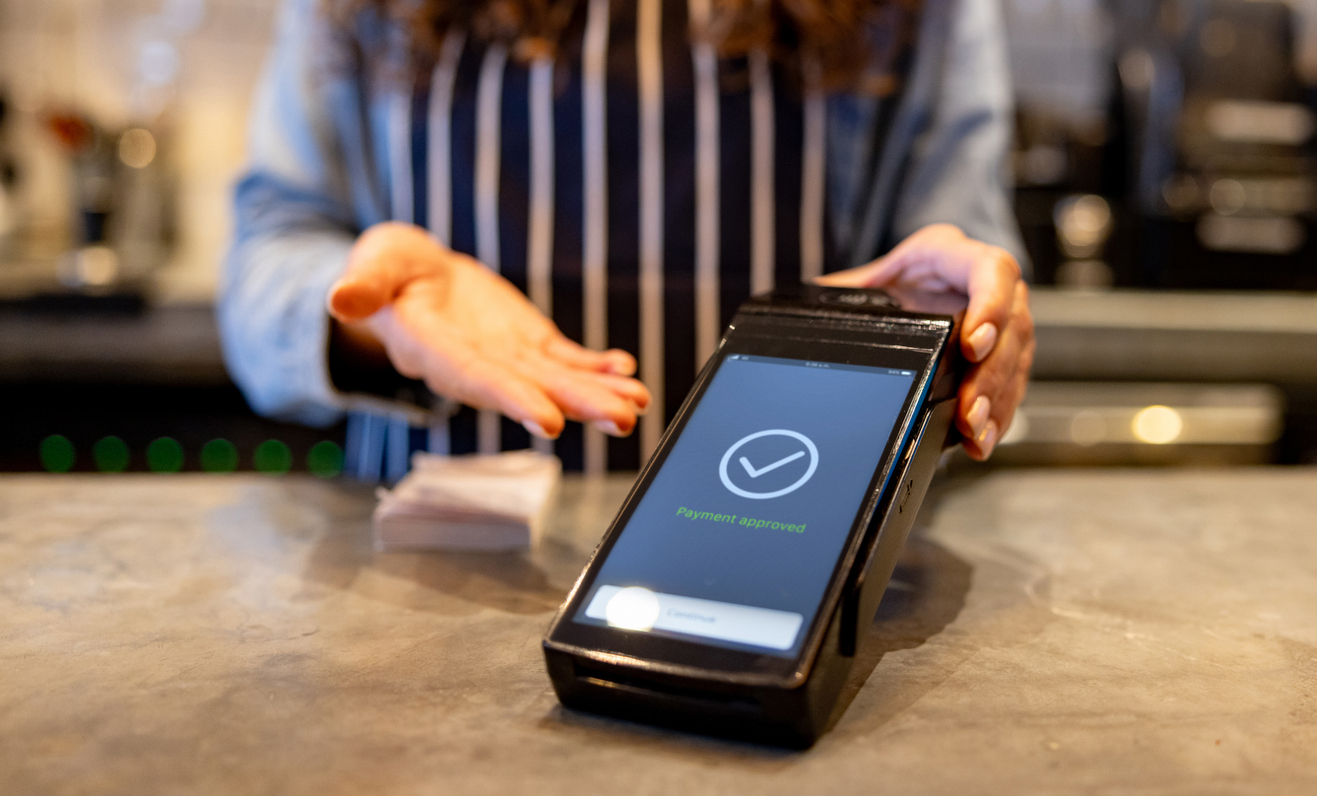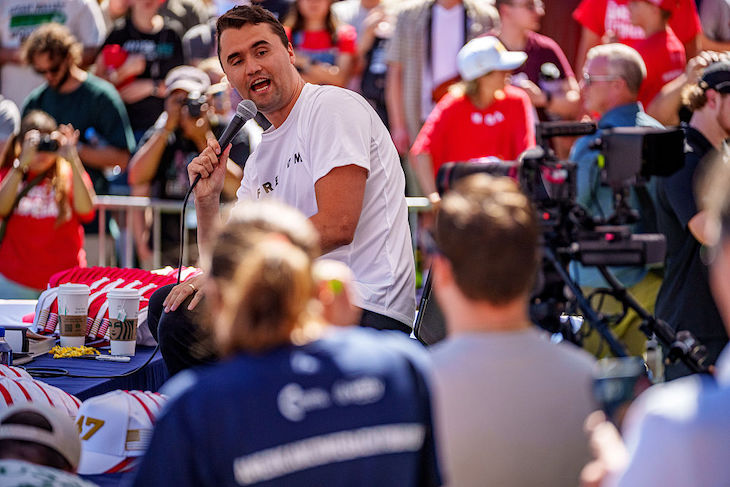At the Eurostar terminal at London St Pancras, on my way back to Paris, I stopped at the Station Pantry. It’s a counter at the back of the terminal, and it does a roaring trade because it’s the only coffee place between immigration, security and the trains. There’s little else to do while you wait to be called to board, particularly when there aren’t enough seats for everyone. I ordered an espresso for £3.60. The cashier swung the screen around for me to pay. Ten, 15, 20 per cent? A tip for a cup I was about to carry away myself. I said it was wrong to be asked for a tip on takeaway coffee. She said that if I didn’t like it, I could press the red button and decline. But that’s not the point.
This practice of prompting us to leave tips hasn’t come from customers. It’s been imposed from outside, brought in by payment terminal design and business opportunism rather than by genuine demand. It arrived from the US and it’s now embedded in the software that drives our payment terminals. Walk into a coffee shop in an airport, a station or a tourist area, order something to take away, and the screen offers three big green buttons: ‘Add 15 per cent’, ‘Add 20 per cent’, ‘Add 25 per cent’. The ‘No tip’ option sits smaller at the bottom.
This isn’t neutral design. It’s a nudge to pay more than the price on the board. In countries where service is already included and staff are paid a wage, it feels like a moral sleight of hand. Customers are being pushed into subsidising the business model.
There’s one improvement. Since October last year the Employment (Allocation of Tips) Act requires employers to pass on the tips to staff and to publish a written policy on how it’s distributed. It stops owners skimming optional service charges. But it doesn’t address the point that the tip prompts can appear before the service has been rendered, and the product is even in your hand.
This is an American import. In the US tips form part of wages. Many tipped workers can be paid below the minimum wage on the assumption that tips fill the gap. Hence the ubiquity of prompts and the 20 per cent norm in a New York diner.
We’ve taken the software without the context, and the result is opportunism. A barista in London or Paris isn’t living off tips. Service is included. Wages are higher. The premise doesn’t apply. What you see isn’t generosity, but automation. Payment terminal firms make it easy to switch on the prompts, and tourists quietly pay.
Across the Channel the mismatch is starker. In France, the law requires that service charges be included in prices (‘service compris’). You pay what’s printed on the menu or on the board behind the counter. Tips are optional and are meant as a token of appreciation, certainly not an obligation.
Yet in the past two years, especially in Paris tourist neighbourhoods, prompts have crept in. Buy a takeaway sandwich near Notre Dame and the terminal may nudge you to add 10 per cent. Many visitors oblige, unaware they’re already paying for service.
In 2022 the French government introduced a temporary exemption from income tax and social charges on tips paid by card. This was to boost hospitality after Covid. The measure has been extended and runs until the end of this year. In practice, digital tips cost employers nothing and go straight to staff, which gives cafés and increasingly boulangeries another reason to encourage them.
For a clearer model, look to Switzerland. Since 1974, Swiss practice and industry agreements have required that service charges be included in prices. Tipping beyond that remains voluntary. Rounding up is customary if you wish. You leave 20 francs for a 19-franc bill in a café and nobody expects more. Even so, in Zürich or Geneva cafés that serve many visitors, terminals have now started to request tips. Locals press ‘no tip’ without hesitation. Tourists, less confident, often comply.
In Japan, the line’s firmer. Tipping is not expected and can be seen as rude. The price you see is the price you pay. Some chains have added tip boxes for Western visitors, and the local backlash has been swift.
Even in the US resentment is growing. Surveys show that 72 per cent of Americans believe tipping is now expected in more situations than five years ago, and 41 per cent say it’s ‘out of control’. Unsurprisingly, a study just found that requesting a tip before service reduces customer satisfaction.
The incentives persist. Payment terminal firms benefit from higher transaction values. Employers hold list prices down while customers shoulder more of the wage bill. Nudging dresses itself up as etiquette, and it works.
There’s also an ethical problem. When a screen flashes up percentages, refusal looks stingy. People feel watched and cornered into paying extra where there is no reason to. The ones who pay most are those least equipped to know they can refuse – tourists, foreigners, tired travellers, families, anyone too polite or rushed to press ‘no tip’.
At St Pancras I pressed the no-tip button and took my coffee. The principle matters. Where service is included and wages are fair, a tip should remain voluntary. If businesses want to pay staff more, they should raise prices honestly. At the very least, stop ambushing travellers at the till with a guilt prompt. A tip is a present freely given. When a touchscreen demands one before you’ve even had your coffee, it’s not asking you to express appreciation. It’s a way of taking advantage of customers, exploiting the moment when they’re captive, rushed and uncertain.








Comments